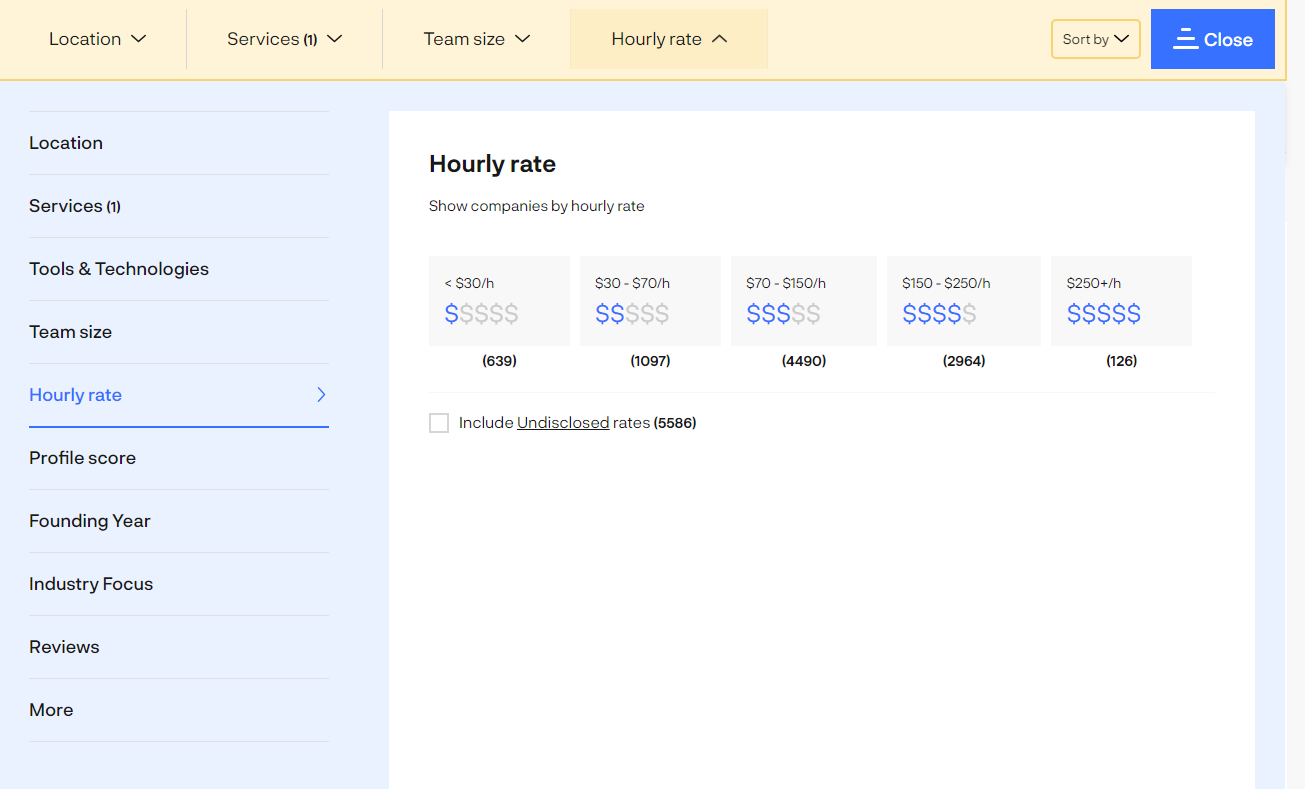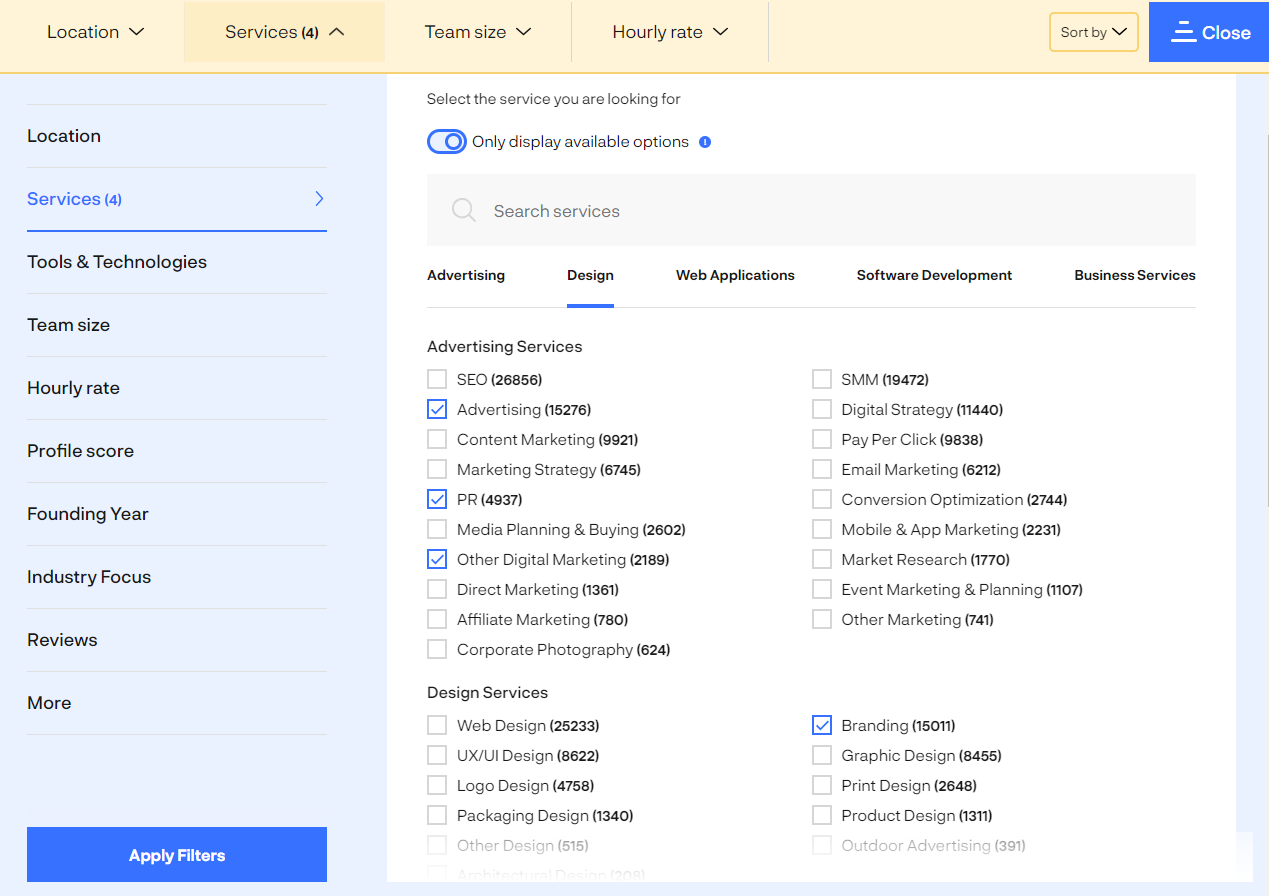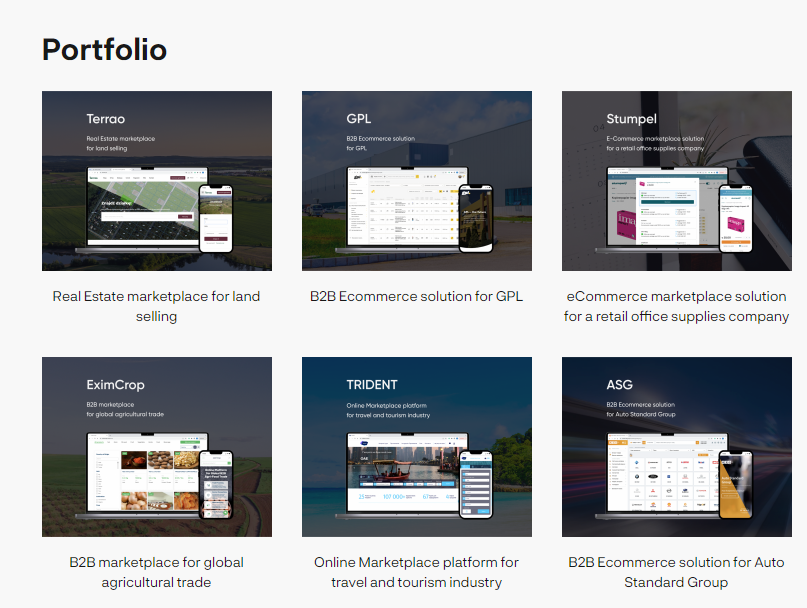How to choose a Branding Company?

Branding plays a central role in creating the unique identity of a business, making it easily recognizable and memorable for consumers.
A strong brand builds trust and loyalty and influences buying decisions.
In this connection, a branding company can have a significant impact on the image and success of your business, which is why choosing the right branding company is such an important decision.
To make this choice easier, we suggest considering the following key factors that increase your chances of finding the right branding partner.
#1 Understand Your Needs
Before you start looking for branding companies, take the time to understand what are your company needs.
Let's say you are the owner of a small bakery and you want to engage with a branding agency to improve your brand image.
Ask yourself the following questions:
-
Why are you branding? - Are you looking to make different your bakery from competitors or do you want to increase your customer base?
-
What problem are you trying to solve? - Are you struggling with low traffic or a lack of brand recognition?
-
What are your goals for the project?- Do you want to increase sales, establish a strong online presence, or target a specific customer segment?
Having the answers you can realize for example that your goal is to attract more customers, especially those who are interested in eye-catching and Instagram-worthy desserts. Knowing this you can tell branding agencies that you need a visually attractive and modern brand identity.
If you have a clear understanding of your requirements you can set the direction of the project and give the agency clear goals to work towards. All these resulted in a more effective and successful branding initiative.
#2 Define Your Budget
Consider how much budget you have available for the branding project. You may be tempted to choose a cheap agency but remember that branding is a long-term investment in your business.
For example, if you're a small startup and you want to make your brand visible, but you have a limited budget, you need to be careful with how you spend your money.

Suppose you find a good brand agency that offers a package that includes things like creating a strategy for your brand, designing a cool logo, and coming up with a unique look for your brand. It costs $15,000, which might seem like a lot, but they have a great reputation and they know what they're doing.
By working with them, you can make your startup look more professional, attract customers, and stand out from other businesses. It's a big investment, but it's worth it in the long run because it will help your business succeed.
#3 Determine Timeline
At the same time, take into consideration that branding takes time. A quality agency typically requires 3 to 4 months to complete the project, and if website development is involved, it may take even longer.
Let's consider a scenario where you plan to launch your e-commerce startup in 6 months. To meet this deadline, it's advisable to start the branding project at least 9 to 10 months before your desired launch date. This timeline allows consultation, research, brand strategy, website development, etc.
Timelines may vary based on project complexity, so it's essential to communicate your requirements and expectations clearly with the agency..
# 4 Research Different Types of Agencies
There are various types of agencies that offer branding services. Every agency has its own area of expertise and offers a range of specialized services to meet the specific needs of clients
Here are some of them:
-
Branding Agencies specialize in developing and managing brands. They help clients define their brand strategy, create brand identities, and ensure brand consistency across various touchpoints.
-
Creative Agencies provide services related to design, art direction, and creative content creation. They may specialize in graphic design, web design, video production, or copywriting.
-
Digital Agencies specialize in online marketing strategies and tactics. They offer services such as search engine optimization (SEO), pay-per-click (PPC) advertising, social media marketing, content marketing, and email marketing.
-
Public Relations (PR) Agencies focus on managing and improving the public image and reputation of organizations or individuals. They handle media relations, crisis management, event planning, and strategic communication.

Start your search by using search engines such as Google. Look for organic search results rather than paid ads.
Research and understand the specific services each type of agency provides. Don't get too caught up in the names; focus on their capabilities and the quality of work they produce.
#5 Review Portfolios
Look for agencies that have a strong portfolio of work. When evaluating an agency's portfolio, draw attention to:
-
Quality.
Check their previous projects for well-designed websites, engaging social media campaigns, and successful marketing strategies. Look for professionalism and attention to detail.
-
Resonance.
See if they have worked in a similar industry or with businesses that share similarities with yours. This shows their ability to understand your target audience and address your specific needs.
-
Alignment.
Ensure their work matches your brand's aesthetic and values. Look for consistency in visual style, tone of voice, and messaging to ensure a seamless representation of your business.
-
Goals and Results.
Evaluate their ability to achieve goals and produce results. Check for increased website traffic, lead generation, or improved conversion rates. Client testimonials and performance metrics are helpful indicators.

#6 Check Experience and Establishment
Pay attention to how long the agency has been in business and which is their level of experience. Both newly established agencies and those with many years of experience have their advantages and disadvantages.
A newly established agency brings fresh perspectives and personalized attention. Their young and enthusiastic team can offer innovative ideas and direct communication. However, their limited experience and industry networks may pose challenges.
On the other hand, an established agency offers extensive experience and strong industry relationships. They have a track record of success and valuable insights. However, you might receive less personalized attention due to their larger client base, and they may be less flexible in adopting new approaches.

Ultimately, the decision depends on your project's specific needs.
Newer agencies may offer more focused attention on your project, while established ones bring a wealth of experience and industry knowledge.
#7 Read Client Testimonials
It's always a good idea to check out client testimonials.
Take some time to read through what previous clients have to say about their experience working with the agency. Pay attention to aspects like responsiveness, personal approach, and attentiveness that are often highlighted by clients.

It's important to ensure that the testimonials are genuine and not fabricated, as some agencies may try to manipulate them.
Take a look at their website, and check if it looks good. The website can indicate that the agency pays attention to detail and values a positive user experience. However, keep in mind that a great website doesn't necessarily guarantee the quality of their work
Awards also play a role in a company's reputation and can be an indicator of a proven track record, but it's not a game-changer. Reliable agencies are often known for their track record of successful projects and positive client experiences, rather than just a shelf full of awards.
So, when evaluating an agency, take the time to read client testimonials, assess their website and social media presence, and consider their actual work quality and industry reputation.
Conclusion
As we have seen choosing the right branding company is so important for a business's success.
Understanding the needs you have, defining your budget, and considering the timeline are key factors to consider.
Researching different agency types, reviewing portfolios, and checking experience are essential steps. Reading client testimonials provides valuable insights.
By carefully evaluating these factors, you can make an informed decision that aligns with your expectations.